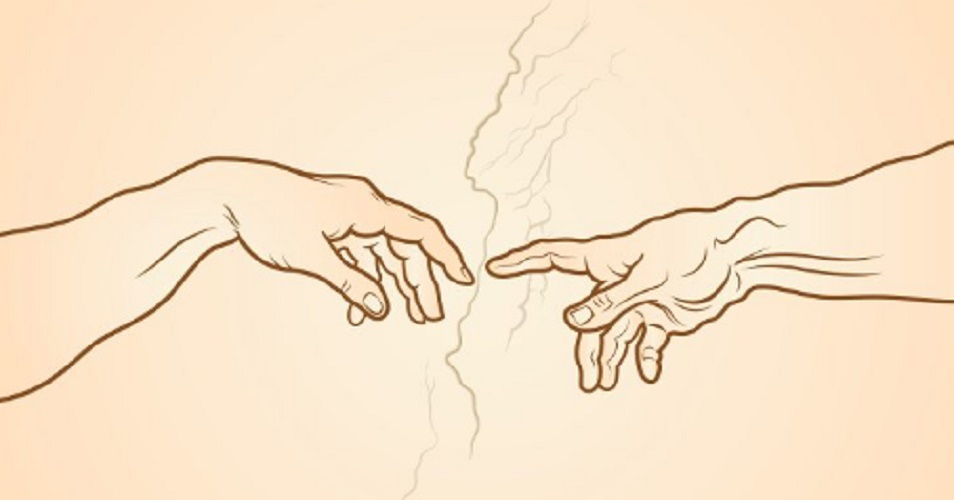What is humanism?
We explain what humanism is and how this philosophical current emerges. How were the humanists and the types of humanism.
-
What is humanism?
Humanism was a European philosophical, intellectual and cultural movement that emerged in the fourteenth century, and was based on the integration of certain values considered universal and inalienable of the human being . This current of thought arose in direct opposition to theological thought, where God was the guarantor and the center of life.
The humanist movement establishes and lays the foundations of law, human rights policies that are part of the legislation of all nations today. Humanistic thinking is generally understood as an anthropocentric doctrine . The organization of society must occur in such a way that human well-being is guaranteed.
This current tries to guarantee that the human race is the measure from which the cultural parameters must be established. Human activity should not transgress the minimum values that humanism holds, otherwise serious violations of the human race as a whole would be taking place.
The humanists also relied on great thinkers of antiquity , such as Aristotle and Plato, to develop their theory that knowledge was what gave people power, giving them happiness and freedom at the same time, taking into account that in a way freedom is power.
For this reason, they took actions such as making the works that were the result of the printing press reach all possible people, at all costs they wanted to expand knowledge and create a more cultured society . This group privileged the human sciences and was interested in all those disciplines that were intended to develop the values of the human being as such.
Currently this current is opposed to consumerist tendencies, narcissism and bodily exaltation , and everything that implies an end of exploitation of the human, mainly of his body. Of course, it is also in opposition to the deplorable working conditions in which many workers find themselves and to discrimination.
-
How does humanism arise?

Certain historical events contributed to the proliferation of this thought, one of them was the appearance of the printing press in the year 1450 invented by Johannes Gutenberg. This revolutionary invention allowed the issuance of books, pamphlets and other types of banners intended to propagate critical messages. In this way humanistic thoughts spread against the thoughts of the Middle Ages and medieval authority.
Another important factor was the creation of important universities (such as Alcalá, Henares, Leuven, etc.), from there they contributed greatly to the proliferation of humanistic ideas and critical thinking .
On October 29, 1945 the philosopher Jean Paul Sartre gave a lecture in post-war era climate, and the aforementioned had a profound effect on altering all philosophical thinking from that moment. This conference was called ” Existentialism is a humanism “, and marked a milestone presenting a new conception about man and humanism.
In a ruined Paris after World War II , this conference set the tone for the search for a new human horizon, a new moral horizon that incorporates the responsibility of man and his existence , outside of what progress and its devastating war consequences.
The responsibility now rests with the man who, from his existence, must be responsible for his decisions, dismissing excessive personalistic or progressive thoughts. In the light of the facts, man’s responsibility now centers on responsibility for the course of all humanity.
-
What did humanism propose?
This current was intended to restore all those disciplines that could somehow help to have a greater knowledge and a better understanding of these authors who considered great sages, in addition to thinking that they posed a much purer model of knowledge than that existing in the Middle Ages .
To begin with this change , the education model that was at that time was reformulated , taking into account the study of Latin and Greek classics and opening new schools that promoted the study of other languages and classical letters, banishing the trivium and the quadrivium (previous models).
They were also developed sciences like grammar , the rhetoric , the literature , the philosophy morality and history , which are sciences that are closely linked to the human spirit.
It also tried to eliminate all those closed systems that did not allow the multiplicity of perspectives of thought . It was thought that with this change the total development of man would be achieved: physical and spiritual, aesthetic and religious.
The generation of this change was what opened the way for what is now high school, also called humanist. Unfortunately, over time interest in this type of education was lost and it ended up being a type of instruction received by a few privileged.
-
What were the humanists like?

Humanism is basically characterized because it returns to classical wisdom . The humanists were quite interested in looking back to study the past, the men of this current give value to the human being for what he is: a natural and historical being.
For this reason they are distinguished from the previous age, because they stop seeing man from the theological perspective . It is not that they invalidated religion , but that they considered it to have a specific civil function and that it was a tool to maintain the peace of a society.
Moreover, the humanists were men of religion , mostly Christians, but they sought the answers to their questions about the world and things in ancient thinkers. This search for knowledge was characterized by having developed a critical way of thinking.
-
Types of Humanism
In addition, you can also refer to Humanism to talk about:
- Christian Humanism: Religious movement where man is intended to have his full realization from acceptable Christian frameworks.
- Evolutionary humanism: It is a current of thought that oscillates between philosophy, epistemology and anthropology .
- Secular Humanism: Movement that is based on certain philosophical currents and the scientific method to discard those supernatural explanations, such as creationism, that exist on the origin of the universe and humanity.




